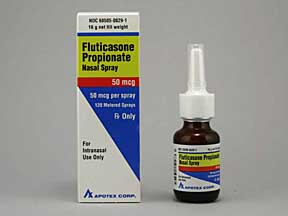
Flonase Allergy Relief Coupons & Savings Card – Discount Prices from $8.27
Brand for: Fluticasone
My prescription
Edit
16GM of 50MCG/ACT, Fluticasone (1 Bottle)
Select pharmacy

CVS
$21.35
COUPON PRICE
Walmart
$8.27
COUPON PRICE
Walgreens
$16.01
COUPON PRICE
Albertsons
$18.40
COUPON PRICEFlonase Allergy Relief savings card
Show this card to your pharmacist
Walmart
$8.27
BIN
ID
PCN
GRP
019876
LH4367CAF6
CHIPPO
LHX
Powered by
More prescriptions for nasal congestion
More prescriptions for nasal congestion
Price history for Flonase Allergy Relief (brand) & Fluticasone (generic)
1 Bottle, 11.1ML of 50MCG/ACT
Average retail price for Flonase Allergy Relief
Average retail price for Fluticasone
Average SaveHealth price for Fluticasone
Our price history data is based on aggregated prescription data collected from participating pharmacies in America. Our prescription data updates daily to reflect the latest price changes. If you notice a missing data point, it means there wasn't sufficient data available to generate a monetary value for that date.
Over the last 12 months, the average discount price of Flonase Allergy Relief is $14.74 using the SaveHealth savings card. That's an average savings of 23.71% on Flonase Allergy Relief with our discount card.
*Retail prices are based on pharmacy claims data, and may not be accurate when we don't have enough claims.
Flonase Allergy Relief (Fluticasone) dosage forms
Dosage Quantity Price from Per unit 11.1ML of 50MCG/ACT 1 Bottle $6.50 $6.50 11.1ML of 50MCG/ACT 2 Bottles $17.00 $8.50 11.1ML of 50MCG/ACT 3 Bottles $29.82 $9.94
| Dosage | Quantity | Price from | Per unit |
|---|---|---|---|
| 11.1ML of 50MCG/ACT | 1 Bottle | $6.50 | $6.50 |
| 11.1ML of 50MCG/ACT | 2 Bottles | $17.00 | $8.50 |
| 11.1ML of 50MCG/ACT | 3 Bottles | $29.82 | $9.94 |
Does Flonase really help with allergies?
Flonase, a nasal spray containing fluticasone propionate, is commonly used to help alleviate symptoms associated with allergies, such as nasal congestion, sneezing, and runny nose. It works by reducing inflammation in the nasal passages, which can provide relief for individuals suffering from allergic rhinitis. Many patients find it effective in managing their allergy symptoms. However, individual responses can vary, and it is advisable to consult with a healthcare provider to determine if it is suitable for one's specific condition.
What is the downside of Flonase?
Flonase, a nasal spray containing fluticasone, can have several potential downsides or side effects. Common side effects include nasal irritation or burning, headache, sore throat, and nosebleeds. Less commonly, it may cause more serious effects such as vision problems, severe nosebleeds, or signs of infection. Long-term use can potentially lead to systemic effects like adrenal suppression. It's important for individuals to use Flonase as directed and consult a healthcare provider if they experience any concerning symptoms.
Is Flonase a steroid or antihistamine?
Flonase is a steroid. It is a nasal spray that contains fluticasone propionate, which is a corticosteroid used to reduce inflammation in the nasal passages.
Is Flonase alone enough for allergies?
Flonase, a nasal corticosteroid spray, can be effective in managing symptoms of allergic rhinitis, such as nasal congestion, sneezing, and runny nose. However, the effectiveness of Flonase alone can vary depending on the severity of the individual's allergies and their specific symptoms. Some individuals may require additional medications, such as antihistamines or decongestants, to fully control their allergy symptoms. It is advisable for individuals to consult with a healthcare provider to determine the most appropriate treatment plan for their allergies.
Who should not use Flonase?
Flonase should not be used by individuals who are allergic to fluticasone or any other ingredients in the medication. It is also not recommended for those who have had recent nasal surgery or injury, as it may affect healing. Additionally, individuals with untreated fungal, bacterial, or viral infections should avoid using Flonase. It is important for pregnant or breastfeeding women to consult a healthcare provider before using this medication. Children under the age of 4 should not use Flonase unless directed by a healthcare professional.
